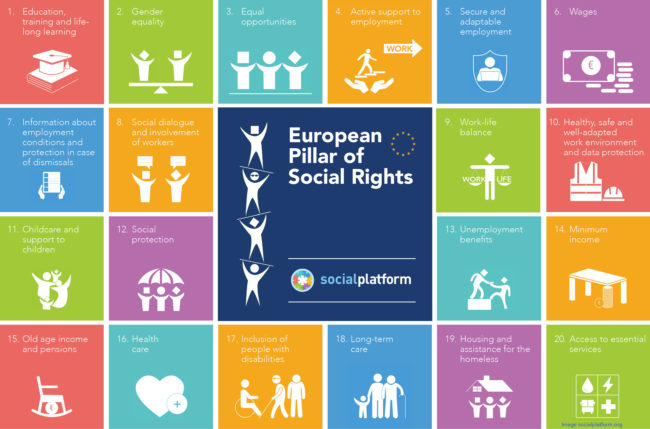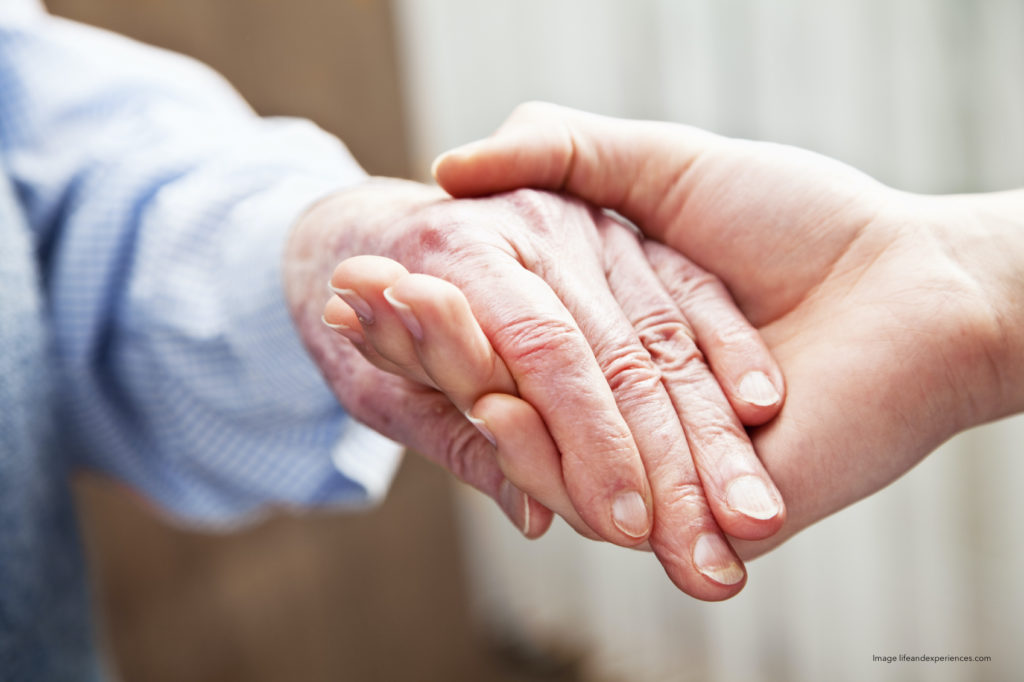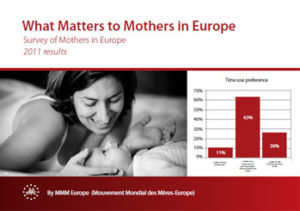MMM Responds to EU Commission’s Public Consultation
03.12.20
We answered by submitting a paper describing our views on the future of the European Pillar of Social Rights Action Plan.

On November 27th, Make Mothers Matter (MMM) responded to the EU Public Consultation: “Have your say on reinforcing Social Europe”.
The European Pillar of Social Rights (EPSR) sets a framework for a socially just and fair society based on 20 key principles. Several of these principles are vital to the economic empowerment and social protection of mothers. They include:
- Education, training, and life-long learning
- Gender equality

- Active support to employment
- Work-life balance
- Childcare and support to children
- Old age income and pensions
- Housing and assistance for the homeless
Considering the importance of the above principles, Make Mothers Matter welcomes the EC Public Consultation on the implementation of the EPSR.
For each of the principles listed above, our paper provides background information on how they affect mothers (context), describe the guiding principles behind our recommendations (what we call for) and finally describe how they could be implemented (recommendations).
In this paper, we highlight that the Covid-19 crisis has hit mothers particularly hard. The reason for this is rooted in the unequal distribution of care and other responsibilities within the household. Women with children under 7 years of age on average spend 20 hours per week more than men on unpaid work.[1] In the context of the pandemic and imposed lockdowns, the demand for unpaid care work and informal education has increased and reinforced pre-existing gender inequalities in sharing this essential work.[2]
 The COVID-19 crisis has shifted care duties back into private households and will have more severe negative effects on women’s income, as they take on this duty at the cost of their labour market participation, thus losing current and future income.[3] It also hinders their opportunities to engage in life-long learning.[4] Recent literature[5] has documented that gender inequalities in earnings and income are closely related to care duties for children, which fall disproportionately on mothers. This is the translation of the motherhood penalty suffered by women with children.
The COVID-19 crisis has shifted care duties back into private households and will have more severe negative effects on women’s income, as they take on this duty at the cost of their labour market participation, thus losing current and future income.[3] It also hinders their opportunities to engage in life-long learning.[4] Recent literature[5] has documented that gender inequalities in earnings and income are closely related to care duties for children, which fall disproportionately on mothers. This is the translation of the motherhood penalty suffered by women with children.
Unpaid care work is indispensable. Someone must respond to the material, educational and emotional needs of the members of a family, not only children but also people affected by a handicap, illness, or old age. As the population of Europe is ageing, the need for care will only increase and the care gap will too. Yet, until it is recognised, reduced, and redistributed, it will continue to hinder women’s and especially mothers’ rights. It is therefore a pre-condition to the implementation of the principles outlined in the Pillar of Social Rights.
In this paper, Make Mothers Matter, makes recommendations on how this care work can be recognised (for example by introducing ‘care credits’ to offset breaks from employment taken to provide informal care and count those credits towards pension entitlements, recognising & validating the skills acquired while doing unpaid family care work); reduced (provide high quality childcare centres that are accessible and affordable while giving parents a true choice between outsourced or in-family care solutions as it was clearly highlighted by mothers in our survey “What Matters to Mothers in Europe”[6]) ; and redistributed (implement policies that directly encourage fathers to take leave, adopt work-life balance measures allowing families to adjust their employment according to the needs of each child, the ages and number of children).
; and redistributed (implement policies that directly encourage fathers to take leave, adopt work-life balance measures allowing families to adjust their employment according to the needs of each child, the ages and number of children).
We also make recommendations to give single parents, especially single mothers, a better social protection.
As a member of the Social Platform and the Alliance for Investing in Children, MMM has also contributed to their answer to this European Commission Consultation.[7]
Our answer to the Public Consultation.
[1] EIGE, “Gender Equality Index; Index score for European Union for 2020 ”, 2020.
[2] Z.BLASKÓ., E. PAPADIMITRIOU., A. MANCA., “ How will the COVID-19 crisis affect existing gender divides in Europe? ”, Publications Office of the European Union, Luxembourg, 2020.
[3] Z.BLASKÓ., E. PAPADIMITRIOU., A. MANCA., Ibid.
[4] EIGE., op.cit., p.123.
[5] T. M. ALON, M. DOEPKE, J. Olmstead-Rumsey, and M. TERTILT, “The impact of COVID-19 on gender equality”, 2020; EIGE, “Tackling the gender pay gap: not without a better work-life balance”, 2019.
[6] Results of our survey carried out with 12000 mothers in Europe. Make Mothers Matter, “What Matters to Mothers in Europe ”, 2011, available at https://makemothersmatter.org/delegations/europe/what-matters-to-mothers-in-europe,.
[7] See the answer of the Social Platform and the Alliance for Investing in Children
The New EU Gender Equality Roadmap : A Call for Inclusion of Mothers
04.03.25
The European Commission’s initiative on a new Gender Equality Roadmap post-2025, marks a significant step forward in addressing gender disparities across the European Union. Make Mothers Matter (MMM
Breaking the Cycle: Gender Equality as a Path to Better Mental Health
18.03.25
The Council of the European Union has taken a decisive step in recognising the vital connection between gender equality and mental health.
Europe Must Listen to Mothers: Our landmark report heads to the European Parliament
28.08.25
On 22 September 2025, the voices of mothers will take centre stage in Brussels. For the first time, Make Mothers Matter (MMM) will present its State of Motherhood in Europe








